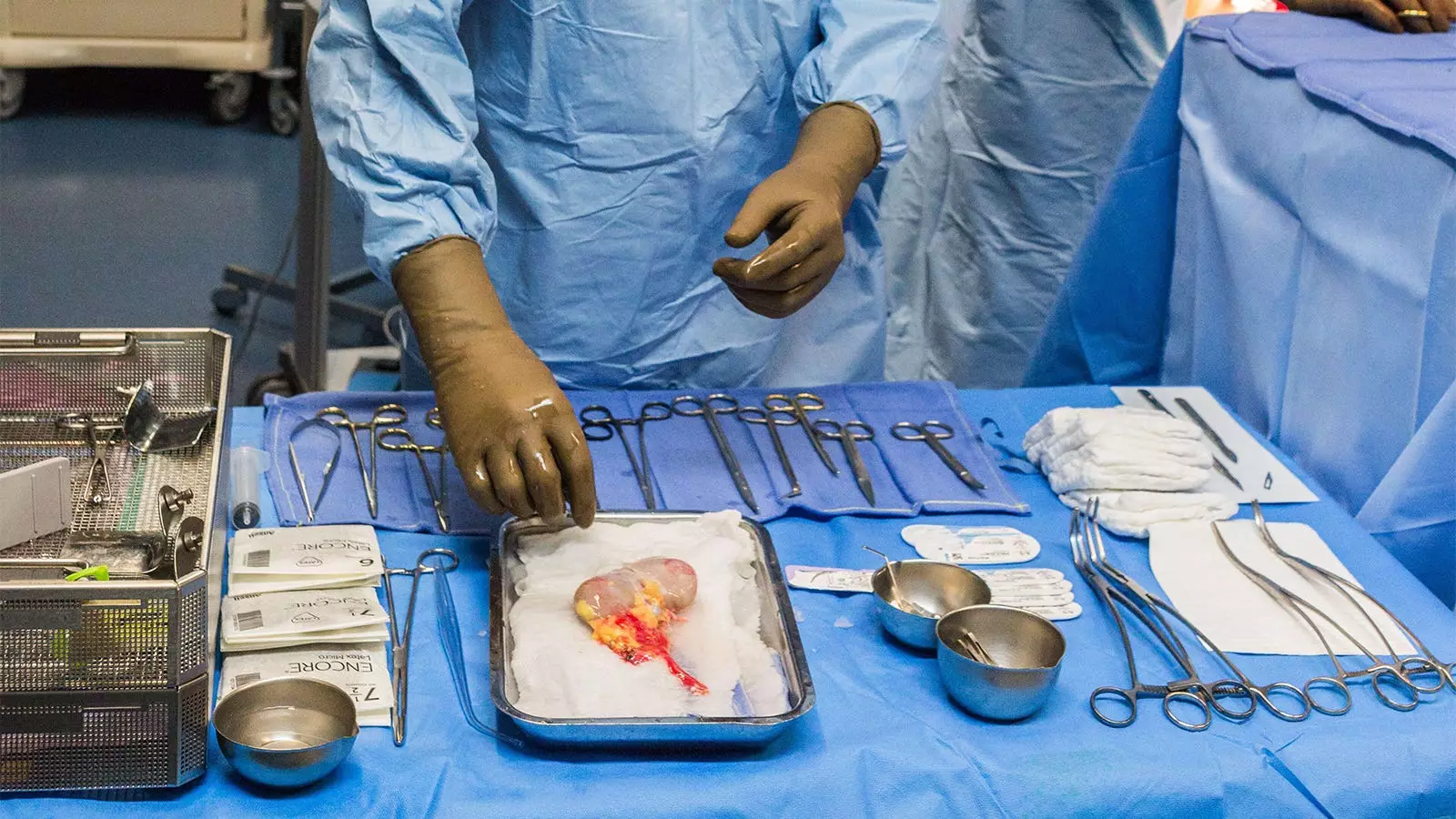Recent advancements in medical research have posed a significant shift in the perception of organ transplantation from HIV-positive donors to HIV-positive recipients. Historically, organ transplant practices were bound by stringent laws and widespread fears surrounding HIV. However, an observational study has revealed promising evidence, suggesting kidney transplants from HIV-positive donors are just as safe as those from HIV-negative donors for patients living with HIV. This groundbreaking development not only raises hopeful prospects for kidney transplantation procedures but also addresses crucial health equity issues faced by individuals with HIV.
The observational study, spearheaded by Dr. Christine Durand and her team at Johns Hopkins Medicine, analyzed data from 198 HIV-positive individuals who received kidneys from deceased donors with HIV. Conducted across 26 transplantation centers in the U.S., the study monitored safety events over a median follow-up period of 2.2 years. Within this timeframe, no significant difference in safety outcomes was found between recipients of HIV-positive and HIV-negative organs, with an adjusted hazard ratio indicating similar risk levels.
The study meticulously defined safety events as a composite of several adverse outcomes, including death, graft loss, serious adverse events, and HIV-specific complications. Such a comprehensive approach allowed researchers to paint an accurate picture of the safety dynamics involved in HIV-to-HIV kidney transplantation, presenting an opportunity to challenge prevailing misconceptions about HIV-positive donors.
The HIV Organ Policy Equity (HOPE) Act, signed into law in 2013, plays a crucial role in this shift in transplant policy. Before its enactment, there was a federal prohibition on the transplantation of organs from HIV-positive donors. The HOPE Act aimed to facilitate and expand research on HIV-to-HIV organ transplants, allowing for a reevaluation of existing protocols. Dr. Durand noted that recent regulatory proposals by the Biden administration may further ease restrictions, potentially eliminating the research-only status for HIV-to-HIV transplants.
The proposed regulations hold profound implications for the transplantation landscape, particularly for individuals experiencing end-stage renal disease and grappling with the added challenges that come from living with HIV. As Durand aptly put it, “HIV-to-HIV transplantation is safe and saves lives.” This sentiment underlines a crucial aspect of the discussion—broadening access to transplant opportunities for this marginalized group not only serves individual patients but also aids the overall transplant system.
Analyzing the broader implications of increased accessibility to HIV-to-HIV transplants highlights that such advancements can benefit the entire organ transplant community, including patients without HIV. Expanding the donor pool can lead to shorter waiting times and improved outcomes for all patients in need of transplants, regardless of their HIV status. This interconnectedness fosters a sense of collective hope within the healthcare system, emphasizing that systemic changes in donor policies can reverberate positively across diverse patient populations.
Despite the encouraging nature of the findings, a notable aspect of the study was the higher incidence of HIV breakthrough infections observed among recipients of kidneys from HIV-positive donors. This incidence underscores the importance of strict adherence to antiretroviral therapy, a critical factor in managing HIV effectively. However, no cases of persistent treatment failure were documented, providing a counterbalance to concerns regarding the long-term implications of such transplants.
While the findings are promising, the study’s observational nature necessitates a cautious interpretation. The lack of randomized control trials introduces variables that may influence outcomes, and further investigations will be necessary to substantiate these findings in larger, more diverse populations. Future research will not only help to validate current results but also explore best practices for optimizing care in HIV-positive transplant patients.
Initiatives to educate healthcare providers and patients regarding the safety and efficacy of HIV-to-HIV organ transplants will be critical for overcoming lingering fears rooted in misconceptions. By raising awareness and promoting understanding of the benefits these transplants confer, the medical community can pave the way for broader acceptance and implementation of these life-saving procedures.
The recent study underscoring the safety of kidney transplantation from HIV-positive donors to HIV-positive recipients signifies a promising new chapter in organ transplantation. By challenging historical prejudices and misconceptions surrounding HIV, this research not only expands the potential for more effective organ transplant practices but also underscores the pressing need for equity within the healthcare system. Moving forward, as regulations evolve and research continues, we stand on the brink of a transformative era that could save countless lives while enhancing the overall quality of care for individuals living with HIV.


Leave a Reply